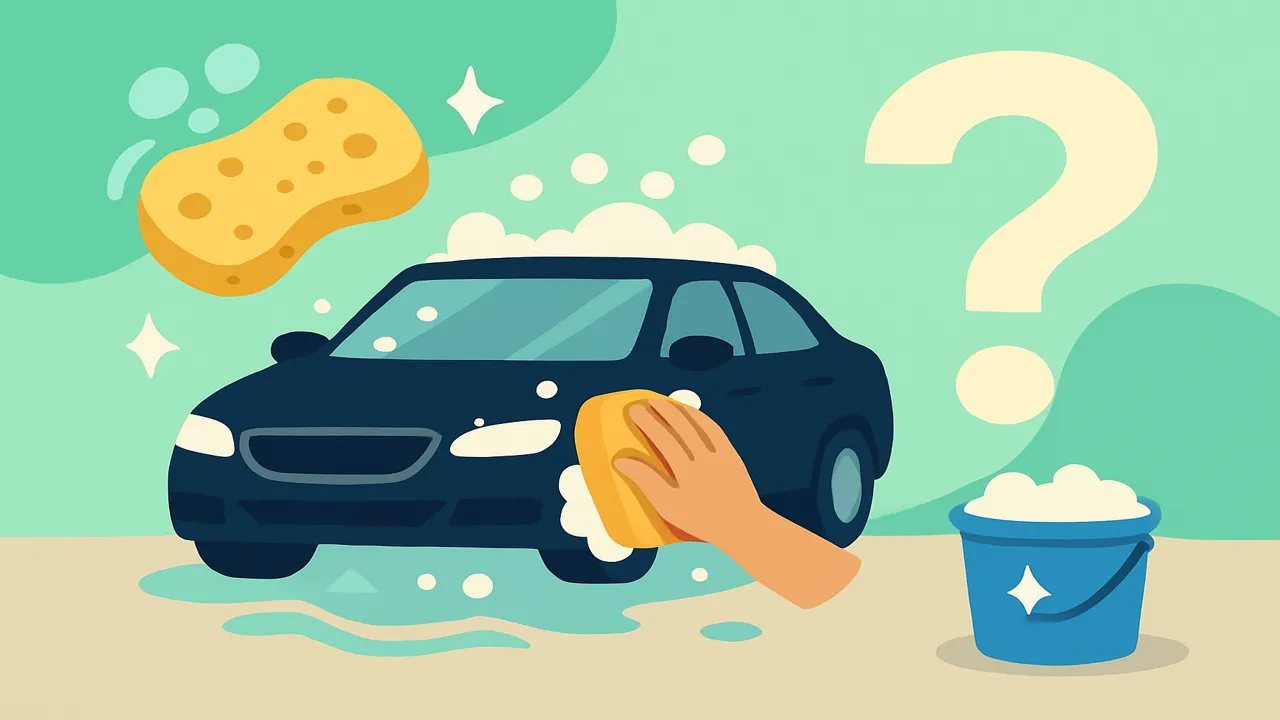Keeping your car clean is more than just about looking good; it’s about maintenance and protection. While many people think regular washing helps preserve their car’s appearance and resale value, some wonder if too much washing might actually cause damage. Is it possible that excessive cleaning could do more harm than good? The truth about overwashing your car and how it can affect its exterior and long-term performance is explained in this article. Let’s explore the facts behind this common debate, and whether there’s a healthy balance you should aim for.
Why Car Washing Is Essential for Vehicles.
Regular washing removes harmful contaminants such as bird droppings, road salt, pollen, and industrial fallout. These materials can damage paint over time, leading to rust or oxidation. A clean surface also allows wax and sealants to properly bond with the car, giving it better protection. Consistent cleaning helps preserve the vehicle’s body and paint, especially in harsh climates. However, despite the obvious benefits of washing, there is a fine line between sufficient and excessive washing.
The Risk of Over-Washing Your Car’s Paint.
Washing too frequently-especially without the right techniques, causes micro-scratches in your car’s clear coat. Even soft sponges or brushes can leave swirl marks when used too often or incorrectly. Over time, these tiny abrasions dull your car’s finish and reduce the paint’s ability to repel dirt and moisture. This leaves the surface more vulnerable to long-term damage, which ironically requires more maintenance. That’s where technique becomes just as important as frequency.
How Improper Washing Can Do More Harm.
It’s not just about how often you wash, but how you do it. Using harsh soaps, dirty cloths, or automatic car washes with stiff brushes can accelerate wear. Poor washing methods strip away protective layers like wax and ceramic coatings, exposing paint to the elements. If you’re washing your car often but carelessly, you may be causing more harm than if you washed it less but properly. To strike the right balance, it’s important to know how to properly maintain your vehicle.
Frequency Depends on Driving Conditions.
How often you should wash your car varies with your environment. If you drive daily in areas with salted roads, dust, or pollution, washing once a week might be necessary. On the other hand, if your car stays parked indoors or you rarely drive, biweekly or even monthly washing may be fine. Seasonal factors like pollen in spring or road salt in winter also influence ideal washing frequency. So, your washing schedule should adapt to your car’s exposure.
Protective Coatings Help Reduce the Washing Need.
The application of protective layers, such as ceramic coatings or wax, is one method for avoiding frequent washing. These not only give your car a shiny finish, but they also work better to repel water, dirt, and grime. With a good coating, dirt won’t stick as easily, meaning you can go longer between washes without sacrificing appearance. This gives you peace of mind and reduces the need to clean too often, helping preserve both time and paint.
Finding the Sweet Spot for a Clean, Protected Car.
So, how often should you wash your car? For most people, every 2-3 weeks is ideal, with occasional touch-ups depending on weather and use. Use gentle products, microfiber cloths, and hand-washing techniques whenever possible. By doing so, you avoid over-washing while still maintaining your car’s health and appearance. In the end, it’s about balance-regular care, not over-care, that gives the best results.
Conclusion.
Care Is Good-But Smart Care Is Better. Washing your car is a key part of keeping it looking sharp and functioning well. However, if you aren’t careful about how and when you wash, too much of a good thing can cause unanticipated damage. You can achieve the ideal balance by gaining an understanding of your surroundings, applying the appropriate methods, and avoiding the urge to clean obsessively. Take care of your pet, but not too much. Smart maintenance always beats excessive maintenance. The goal is long-term protection, not short-term perfection. So grab your bucket-but with a plan.
Also Read
- Audi GT50 Concept: A Loud Reminder of Why Car Enthusiasts Fell in Love With Audi
- Nearly 30% of UK Drivers Believe Car Tax Should Be Based on Mileage — Survey
- Why Planes and Boats Escaped the Luxury Tax But Cars Didn’t
- Australia’s Headlight Confusion: Authorities Warn Drivers After Viral $250 Headlight Rule Goes Wild Online
- 2025 Hyundai Venue Facelift Launched in India – Full Details, Variants, and Price
